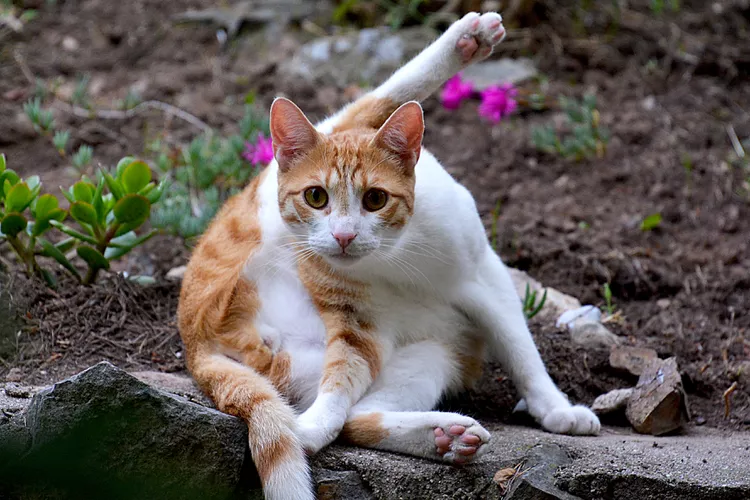
You may have heard of obsessive-compulsive disorder, but did you know cats can have forms of this disorder too? Obsessive-compulsive behaviors in cats may mean your cat has obsessive-compulsive disorder. However, the behaviors may actually be secondary to other health or behavioral issues.
Commonly abbreviated as OCD, obsessive-compulsive disorder is a behavioral disorder that causes a cat to engage in certain "rituals" for seemingly no good reason. These are generally abnormal, repetitive, and exaggerated behaviors that do not seem to serve a practical purpose.
There is no specific known cause of feline OCD, but it does seem more prevalent in certain cat breeds. Feline OCD may be genetic, but this is uncertain.
Cats with OCD will exhibit one or more obsessive-compulsive behaviors. Some cats will have several abnormal behaviors, while others will only show one primary obsessive-compulsive behavior.
All of these behaviors can start out as normal occasional activities for your cat. Or, the behaviors may be triggered by environmental or physical situations. Over time, the behaviors may become fixed, no longer needing external triggers to begin. Obsessive-compulsive behaviors may be reinforced by pain-relieving and pleasure-inducing chemicals in the brain. The behaviors may even become a coping mechanism for a cat in a stressful situation or a cat with anxiety.
OCD cannot be diagnosed with a specific test. Usually, the pattern of behavior is enough to suspect OCD. However, it is important to rule out other causes of the behavior before making a diagnosis. If your cat is exhibiting obsessive-compulsive behaviors, see your veterinarian first.
To diagnose OCD in cats, the veterinarian will first need to rule out medical causes of your cat's behaviors. For example, overgrooming may be related to a skin problem. Your vet will ask several questions about your cat's history and behavior. It may be helpful to show the vet a video of your cat engaging in abnormal behaviors. A physical examination will be performed to look for abnormalities. The vet may also recommend lab testing to rule out problems that can't be detected with an examination only.
If all testing comes back normal, your vet may still decide that your cat does indeed have OCD. The vet will discuss treatment options with you. In serious cases, your vet may refer you to a veterinary behaviorist.
There is no known cure for OCD, but there are some treatments that can reduce or even eliminate the signs.
First of all, do your best not to soothe, comfort, or reward your cat when she exhibits obsessive-compulsive behaviors. Doing so may reinforce the behaviors, making your cat do them even more. Instead, focus on keeping a predictable schedule for your cat. Following a solid daily routine can give your cat reassurance and reduce stress.
Nutritional supplements or natural remedies may be recommended by your vet to help reduce your cat's stress level. These may be used with or without prescription medications, depending on the severity of your cat's OCD. Calming supplements may include tryptophan, L-Theanine, vitamins, and herbs.
Some vets have even begun to recommend hemp-based CBD (cannabidiol) in pets with anxiety. Note that this is NOT marijuana-based, as that can be toxic to cats.
Prescription medications are commonly needed for cats with moderate to severe OCD. These drugs alter brain chemistry to reduce stress and change the pattern of disordered behaviors.
If your cat suffers from OCD, be sure to stay in touch with your vet about your cat's progress. Do not change or stop medications without discussing it with your vet first. Know that treatment protocols may need to be periodically adjusted. Be sure to let your vet know right away if there is a change in your cat's behavior.
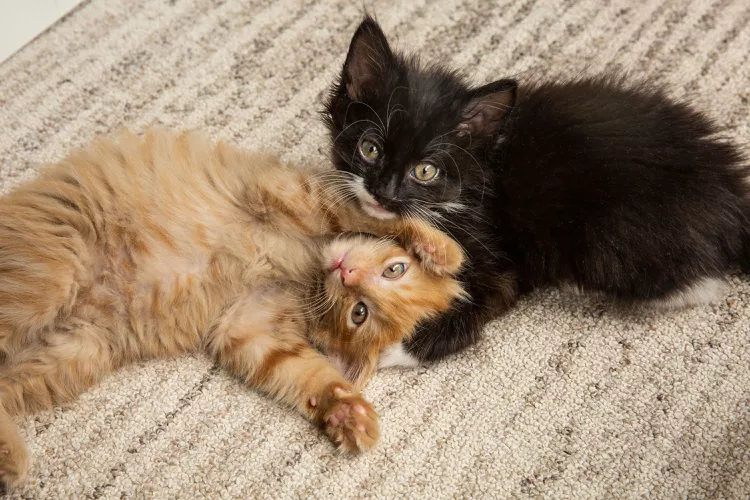
Why Two Kittens Are Better Than One
There are benefits of adopting two kittens, such as more feasible training and companionship between them.
Everything You Need to Know About Raising Your First Cat
Whether you are thinking about getting a cat or just adopted your first one, these are the things to know to make your relationship a lasting one.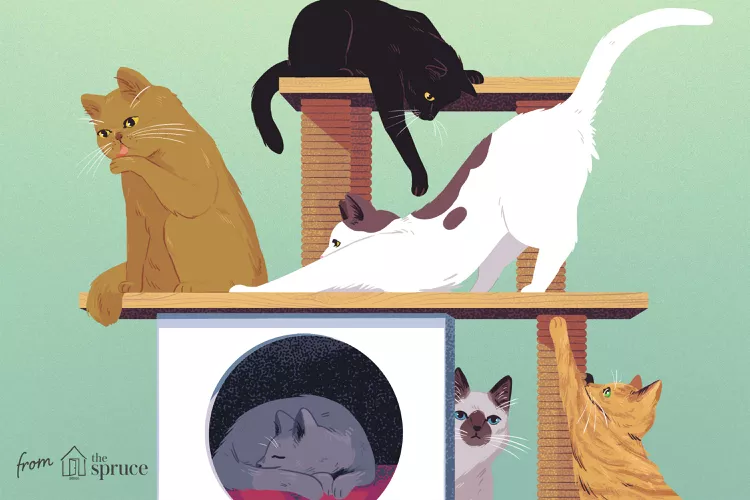
How Can I Tell the Sex of a Cat?
Telling male and female cats apart can be difficult for those who don't know what they're looking for. Here are helpful tips to discover their sex.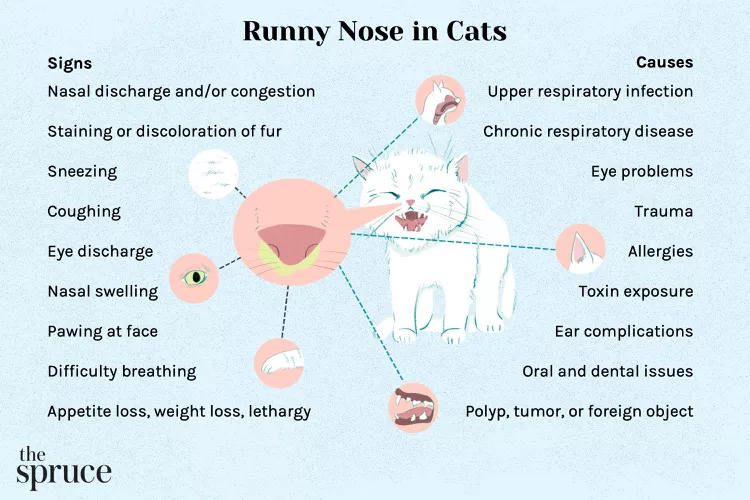
Runny Nose in Cats: Causes and Treatment
Cats get runny noses due to upper respiratory issues, but many conditions can cause this. Learn the causes of runny noses in cats and the associated signs. Find out how vets diagnose and treat cats with runny noses.
How Long Can You Safely Leave Canned Cat Food Out?
You cannot safely leave canned cat food out all day. Twenty to 30 minutes is the max, so give smaller portions and reheat food for later feedings.
Meat Byproducts in Cat Food
Most cat experts recommend premium brands of cat food that avoid ingredients like byproducts and chicken meal. Learn what to look for on the label.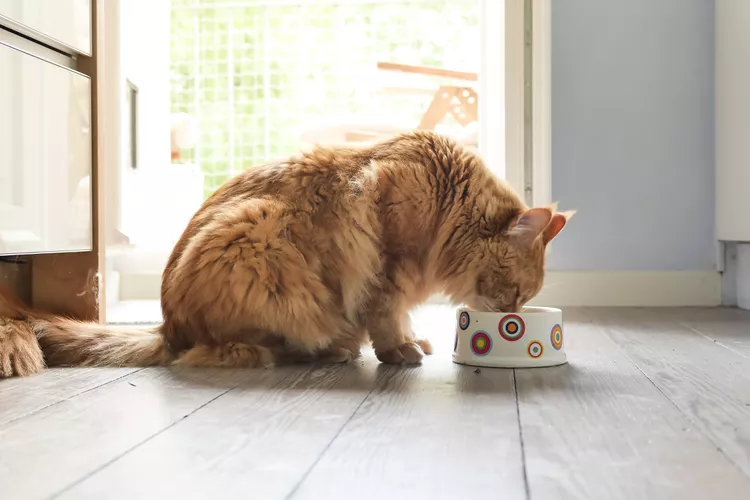
How Much Wet Food to Feed a Cat Every Day
The amount of wet food your cat needs depends on factors such as age, weight, body condition, and lifestyle. Learn how much wet food to feed your cat.
Taurine for Cats
Taurine is an essential animal protein in your cat's diet. Learn more about the various ways it supports your feline's body.
The Different Types of Pet-Friendly Workplaces
Discover the different types of pet-friendly workplaces and the benefits they offer employees. Learn how to create a pet-friendly workplace and the best practices for pet owners.
8 Halloween Safety Tips for Pets
The spooky holiday can be overstimulating and even dangerous for pets. Here's how to avoid the problems caused by toxic candy and incessant doorbells.
Why You Should Keep Cooked Bones Away From Your Dog This Holiday Season
People should be aware of the dangers of cooked bones, especially around the holidays when they might be more accessible to your pup.
Can Dogs Eat Squash? Here's What a A Vet Thinks
Dogs can safely eat squash as long as it's prepared correctly. Find out how to properly feed this versatile fruit to your dog.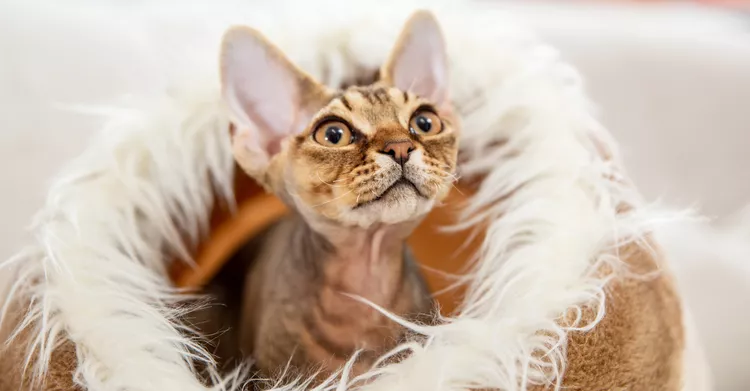
16 Small Cat Breeds That Are Petite Purring Machines
Small cat breeds like the Singapura and munchkin may be smaller than an average housecat, but they leave a giant imprint on your heart.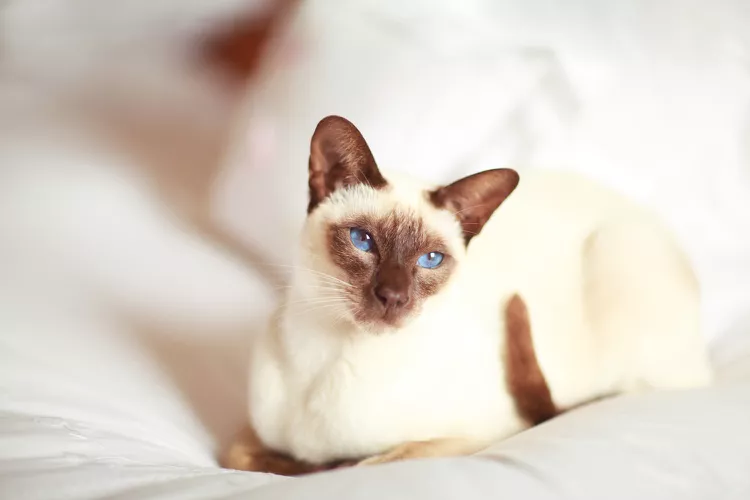
10 Best Cats With Big Ears
Cats with big ears often look extra endearing. Check out some common big-eared cats, including the Abyssinian, Devon Rex, Siamese, Sphynx, and more.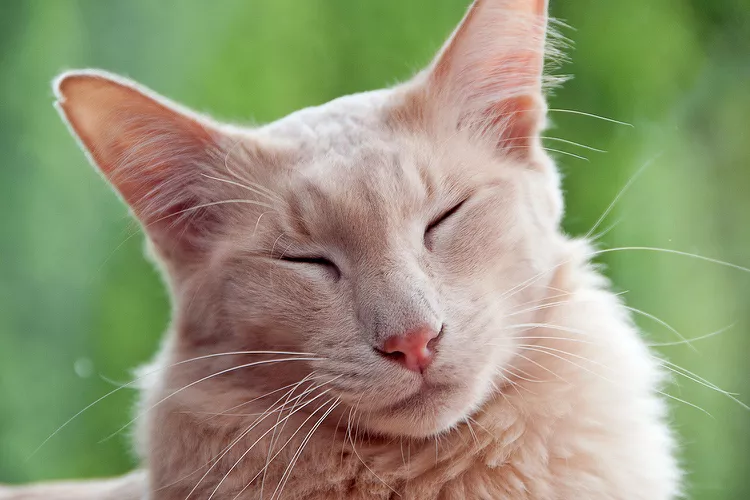
Javanese (Colorpoint Longhair): Cat Breed Profile, Characteristics & Care
The Javanese is a semi-longhaired, color-pointed cat of Siamese type. They are related to the Siamese, Colorpoint Shorthair, and Balinese breeds.
How to Stop Aggression in Dogs
Dog aggression can be a serious behavior issue for pet owners. Learn how to stop aggression in dogs before someone gets hurt.
Should Dogs Be Allowed on Furniture?
Should you let your dog on the couch or in the bed with you? Are there any reasons we should not let dogs on the furniture? Here's what to know.
Why Do Dogs Eat Rocks?
One of the most common non-food items for dogs to eat are rocks. Here's what to know about why dogs eat them and how can you stop your dog from eating rocks.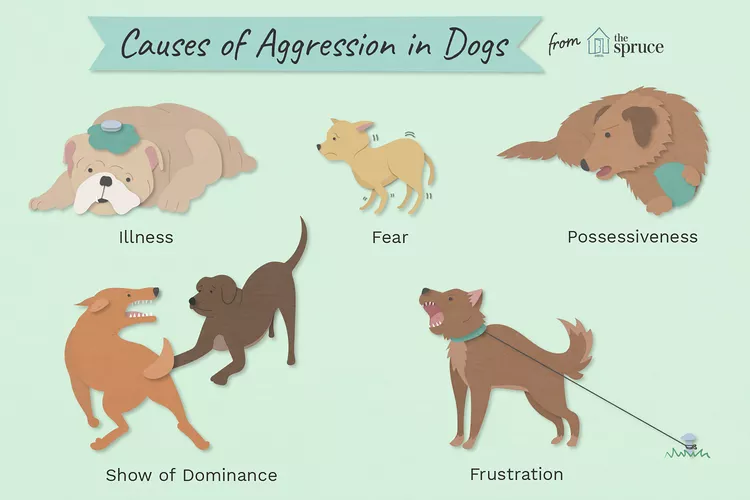
Why Dogs Get Aggressive and How to Stop It
Why is your dog biting you aggressively? Sometimes dogs can become aggressive with little warning. Find out what causes your dog to become aggressive so you can work with the behavior.
Thai Ridgeback: Dog Breed Characteristics & Care
Learn all about the Thai Ridgeback, a rare breed from Thailand. Find out how to care for the loyal dog and where to buy or adopt one.